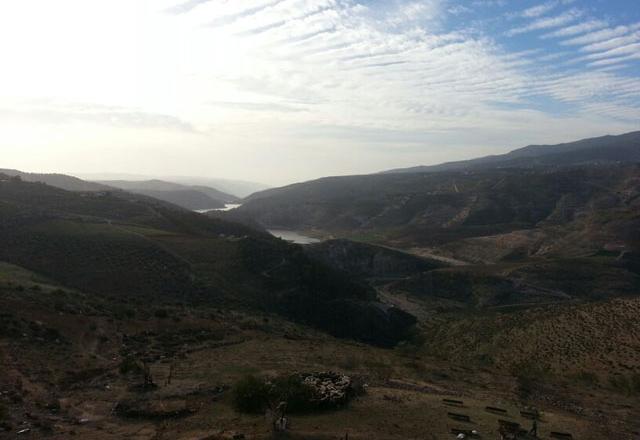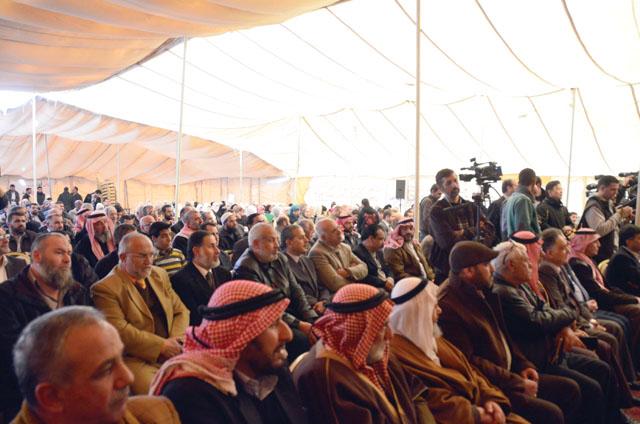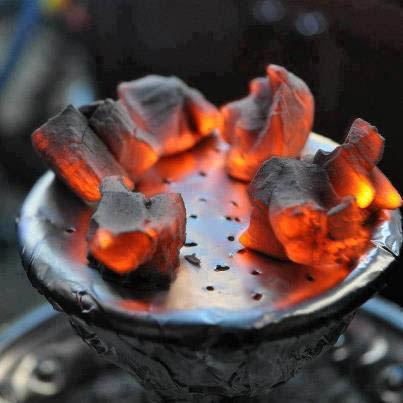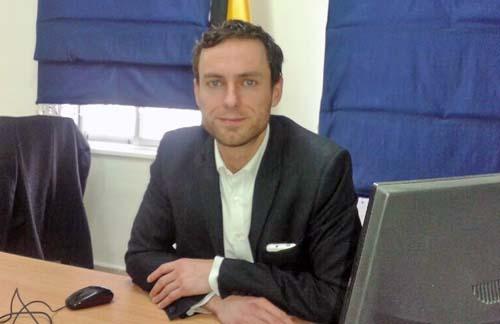AMMAN — There is a growing interest in Jordan in learning the German language and pursuing higher education at German universities, according to the director of the German Academic Exchange Service (DAAD) office in Amman.
In an interview with The Jordan Times on Tuesday, Andreas Wutz attributed this growing interest to the establishment of the German-Jordanian University (GJU) and the inauguration of the DAAD office in the capital.
“GJU is a huge success story because it brought Jordan and Germany [closer] together,” Wutz said.
Since its inauguration in September 2012, the DAAD information centre in Amman, which is part of the Global DAAD network, has been promoting the high quality and, more importantly, affordable German universities in Jordan, he added.
“We have a concise webpage, we offer information materials, brochures and pamphlets, and we organise fairs and presentations at Jordan’s universities on the study opportunities and advantages in Germany,” Wutz said.
DAAD’s main mission is to promote German universities abroad and offer advice and consultation to the German government on education policy, he noted.
“DAAD is a public body that is funded by various federal ministries, mainly the German federal foreign office,” he said, adding that its budget stood at 400 million euros “last year, half of which was spent on scholarships”.
Based in Bonn, Germany, DAAD has granted 1.6 million scholarships to German and overseas students since its establishment in 1925, according to Wutz.
In addition to scholarships, a considerable amount of DAAD’s budget goes to improving the curriculum, paying German lecturers teaching worldwide, and covering the costs of the agency’s information centres around the globe, he said.
There are 500 German lecturers funded by DAAD who teach various subjects at international universities in more than 100 countries.
“In Jordan, we have six lecturers teaching German language and other subjects at GJU and the University of Jordan. The number is relatively high taking into consideration the Kingdom’s small population, as in other larger countries we have only one lecturer.”
Wutz explained that obliging each of the 3,000 GJU students to join a one-year internship programme in Germany as a graduation prerequisite is also a major factor behind the spread of German culture in Jordan.
“In Germany, there are more than 200,000 foreign students, making it the world’s third largest student population after the US and the UK,” he said.
Details about the DAAD information centre in Amman can be found on its website: www.daad-jordan.org. For study programmes offered by German universities, visit www.study-in.de.
DAAD scholarship portfolio
for Jordan:
- Full PhD-scholarships for all academic disciplines. Deadline to apply is September 30 every year
- Master’s scholarships for selected courses with a special relevance for developing countries (deadline: July 31 each year)
- Jordanians can also apply for the four German-Arab master’s programmes which include: integrated water resources management, renewable energy and energy efficiency for the MENA region, international education management, and economics of the Middle East
- Master’s scholarships for public policy and good governance, short term grants (1 to 3 months) for academic researchers (deadline: October 31)
- University excursions for student groups and summer schools for advanced learners of German
Source: DAAD




















